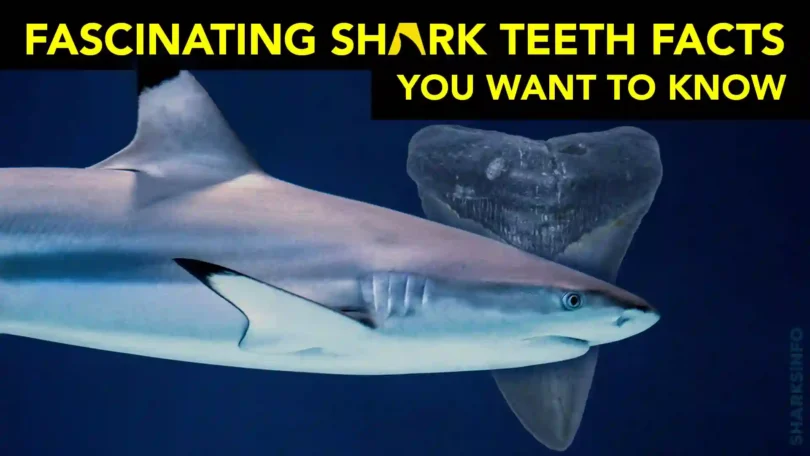Sharks, the apex predators of the ocean can have approximately 3000 teeth in their mouths at any given time. The rate at which this replacement occurs varies between once every eight days and once in several months. Sharks’ teeth are instrumental to their diet and hunting habits. They are used as the chief tools for grabbing, killing, and tearing at their prey. Due to their sheer size and nature, shark teeth have even become collectible, particularly for fishermen and hunters. Do you want to know some interesting shark teeth facts? Let’s begin.
Fascinating Shark Teeth Facts
Shark Teeth Fact 1: How Many Teeth Does A Shark Have In A Lifetime?
A shark has 30 000 teeth in its lifespan! More teeth are lost and replaced during summer than winter as the shark is more active in terms of feeding and hunting in the warmer months.
As they develop and the existing teeth need to be replaced, the rows move forward to replace the front row.

Shark Teeth Fact 2: How Many Rows of Teeth Does a Shark Have?
The teeth of sharks are unique in several ways. First, they are embedded within the gum of the shark, rather than being rooted within the actual jaw, as is the case with most other toothed animals.
This allows them to be replaced more easily, without pain and discomfort to the animal.
This leads to the next interesting characteristic of shark teeth; they are replaced on a regular basis. In most species, teeth are replaced as they are lost or damaged in hunting and eating. In other species, entire rows of teeth are replaced at a time.
Several rows (usually about five) of teeth are grown in a special groove in the jaw.
Shark Teeth Fact 3: Shape Of Shark’s Teeth
The shape of the tooth depends on the species and its specific requirements. Generally, sharks do not chew their food but use their teeth to grab, hold and rip the prey into bite-sized chunks.
Teeth can be sharp, wedge-shaped, and wide with a serrated edge, as in the case of a Great White Shark. This shape is best suited to grabbing and tearing prey apart.
Species like the Lemon and Mako sharks have thin, sharp teeth that are ideal for catching and gripping slippery fish. Bottom dwellers, like the Nurse Shark or Angel Shark, have thick, conical or flat teeth at the backs of their mouths. These are designed to crush crabs and other mollusks found on the ocean floor.
Sharks that feed on plankton, like the Whale Shark, have little need for teeth as food is passed through large filters and then swallowed. In these cases, the teeth are reduced.
Shark Teeth Fact 4: What Are Shark’s Teeth Made of?
Because the teeth are the only part of the shark to be composed of bone, they are the part most likely to be fossilized, providing researchers with vital information about past and present species.
For example, the Megalodon’s teeth have provided much information regarding this ancient shark’s feeding, mating, and migrating habits.
It is hoped that the sharks of today will continue to yield interesting and essential details about the world centuries, even millennia, from now, through the secrets held in their fossilized teeth.

The teeth are placoid scales that have been modified for this specific purpose. They resemble human teeth in that they have a central pulp cavity with dentine and an outer layer of enamel.
They develop on the inner jaw cartilage and are attached to the dental membrane. The crown cap of the tooth develops first, followed by the root.
Shark Teeth Fact 5: Why are sharks’ fallen-out tooth black?
Shark teeth that have been extracted fall to the floor and are covered by sandy material, which protects them from bacteria and decay. These minerals are absorbed by each tooth and replace its dentine and enamel, allowing the fossil to take on the color of the sediment.
The Final Word
Sharks have numerous teeth which keep on shedding and regrowing throughout their lifespan. Their teeth come in various shapes and sizes, as per their feeding habits. Some have sharp teeth while some have flattened teeth, posing no threat to humans. Collecting shark teeth is a fascinating activity, but to do so, it is essential to know some facts about these teeth which we’ve listed above.

